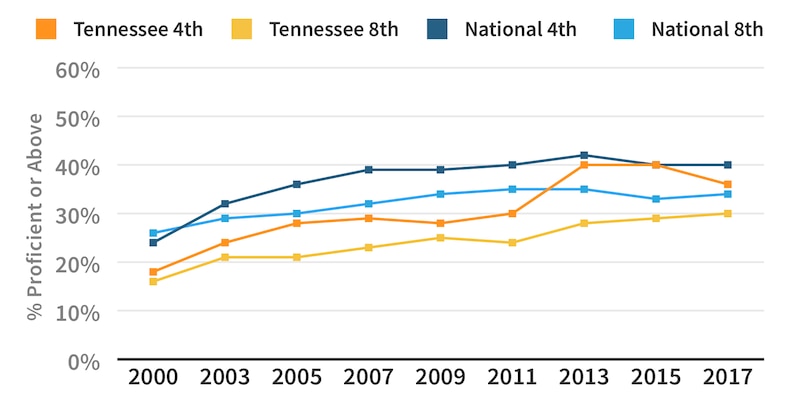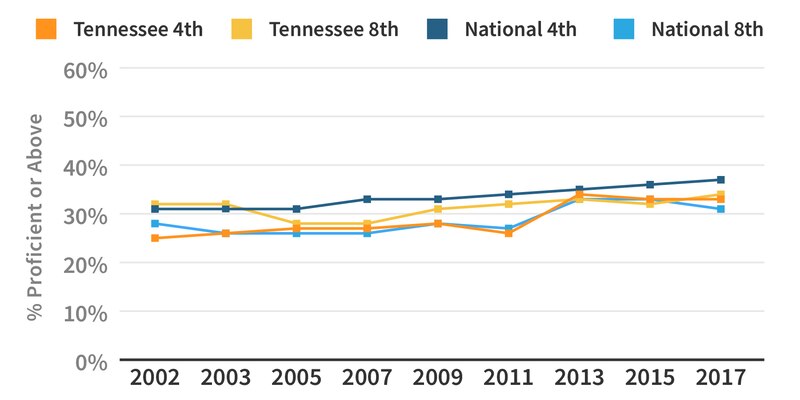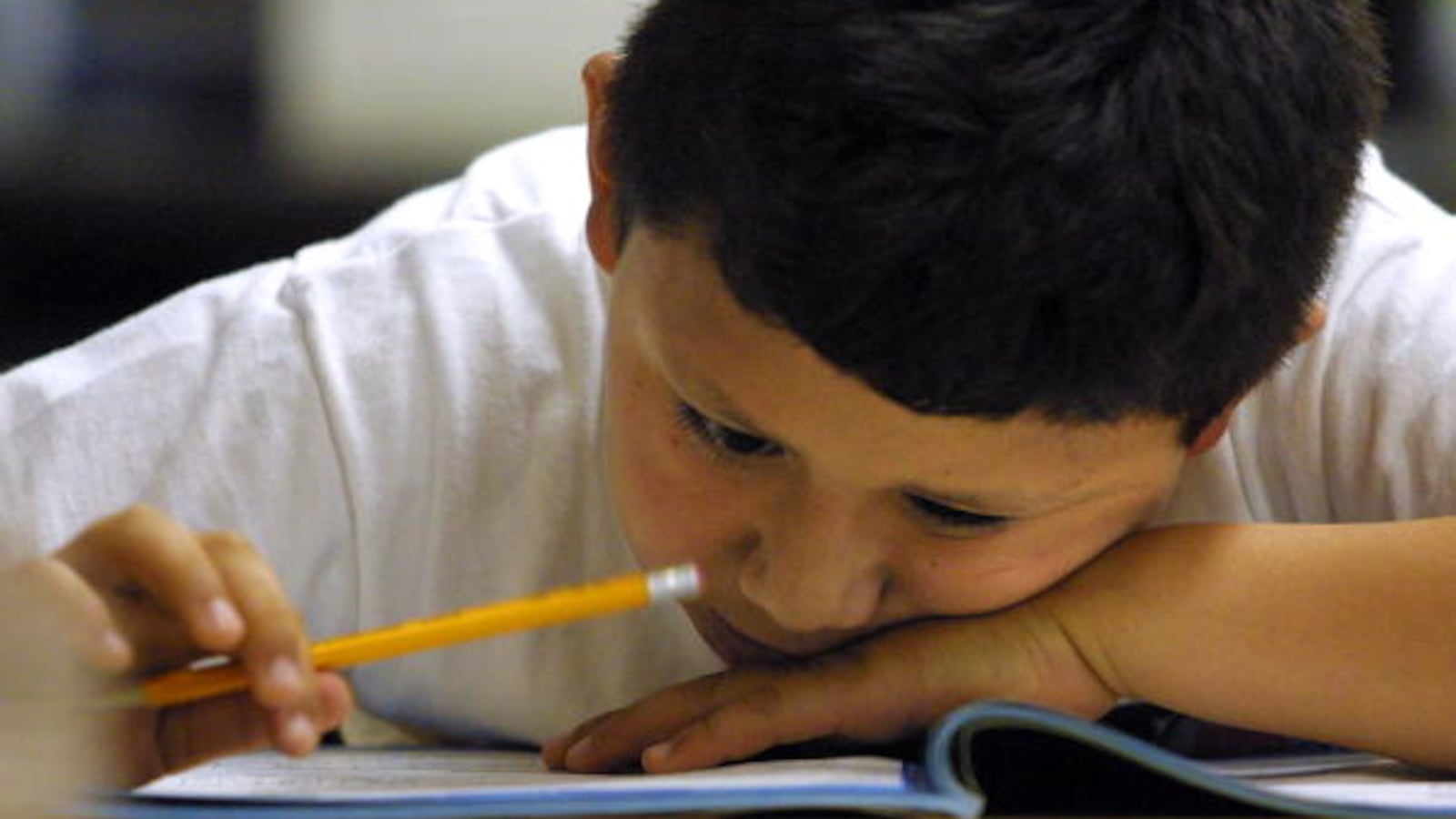Tennessee fourth-graders lost ground in a national mathematics test last year, the first decline since the state launched a massive overhaul of public education in 2009, according to results released Tuesday.
And fourth-graders’ performance in reading stayed mostly flat compared to 2013, when Tennessee’s scores spiked in both math and reading for fourth- and eighth-graders.
Eighth-grade scores stayed pretty much stagnant too in both subjects, based on the latest National Assessment of Educational Progress, also known as NAEP or the Nation’s Report Card.
The fresh data comes out every other year and is considered an important barometer of U.S. student achievement. It’s the only exam administered over a long period of time, capturing trends and allowing states to compare themselves against each other.
Tennessee’s showing from 2017 was disappointing, but state leaders said it was not all that surprising given that the testing happened during a year when the state was transitioning to new academic standards for math and reading, a new test called TNReady, and a revised system for holding schools and districts accountable under a new federal education law.
But it’s likely to lessen the national buzz on Tennessee, which had been on a hot streak for gains posted from 2011 to 2013 and for scores that held steady in 2015 when many other states saw declines.
Mathematics

Reading

The showing also makes it harder to move from the bottom to the top half of states in national rankings by 2019 — a goal that Tennessee’s Department of Education set in 2015 in its five-year strategic plan.
Tennessee now ranks 34th in both fourth-grade math and reading, 35th in eighth-grade math, and 38th in eighth-grade reading, based on the recent NAEP scores.
“We have moved from the 40s to solidly in the 30s,” Education Commissioner Candice McQueen told reporters during a briefing on the eve of the results’ release. “We are still going to move to the top 25 of all states. The timeline may have to be shifted.”
Tennessee’s 2017 performance mostly mirrored national NAEP results, which barely budged over the last two years. But it was one of 10 states that saw a drop in scores for fourth-grade math, similar to the results of the last state-administered TNReady test.
McQueen said she’s confident that Tennessee has laid the foundation for improvement. What’s needed now, she said, is stability. The state has changed academic standards three times since 2009 and is trying to get TNReady testing right after two straight years of problems.
“Stability actually really matters in the coming years so we can start digging deeper,” she said. “We can’t keep changing standards and changing assessments and believe that we’re going to be able to go deeper into the foundation that we’ve set.”
"We can’t keep changing standards and changing assessments and believe that we’re going to be able to go deeper ..."
Candice McQueen, Tennessee education commissioner
On a positive note: Tennessee’s NAEP results showed the same level of student proficiency as the state’s most recent test. That’s a big deal because it was the gap in state and national scores in 2007 — when Tennessee received an “F” in honesty from the U.S.Chamber of Commerce — that spurred state leaders to revamp public education with the help of the federal Race to the Top award.
“While we know there’s much to do, we have finally closed the honesty gap,” McQueen said. “We believe if that study was run today, that we would receive an A for finally telling the truth about what our state test now measures compared to what NAEP measures.”
Last year was also the first year that Tennessee’s largest school district participated in a special NAEP test for urban districts along with 26 other school systems. You can read more about the first year of results for Shelby County Schools here.

